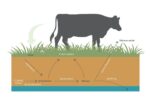Entries Welcome for Food Safety Awards
New Zealand Food Safety is encouraging keen foodies to get their entries in for a number of key 2019 food safety awards. The Significant Contribution to Food Safety, Food Safety Culture and the Primary Sector Products awards celebrate the achievements of those who are demonstrating innovation and excellence in food safety in New Zealand. To enter – visit www.mpi.govt.nz/scholarships-and-awards/ for more details. “We’re focussed on making sure we have safe and suitable food, and that New Zealand food is the most trusted in markets around the world,” said Head of New Zealand Food Safety Bryan Wilson. “Rules are an important part of that, but ultimately food safety is about the people who produce the food we enjoy. Through these awards we can recognise and reward excellence in the primary industries and food sectors.” The Significant Contribution to Food Safety Award recognises an individual, a team, or an organisation who has made a significant improvement to food safety in New Zealand. This could include developing or improving a food safety process or operation. It could be in one sector or across a few. Nominations close on 23 May 2019. The award will be presented during the New Zealand Institute of Food Science and Technology’s (NZIFST) ‘Good Food 4’ Conference in Christchurch on 3 July 2019. “This is the third year that this Award is open and we thank the NZIFST team for their support and allowing us to present the award at their Conference Awards Dinner,” Mr Wilson said. The Food Safety Culture and Primary Sector Products awards are part of the 2019 New Zealand Food Awards. The awards are owned and organised by Massey University. Entries for the NZ Food Awards close on 31 May 2019. Winners will be announced at the Awards’ Gala Dinner on 23 October 2019 in […]










